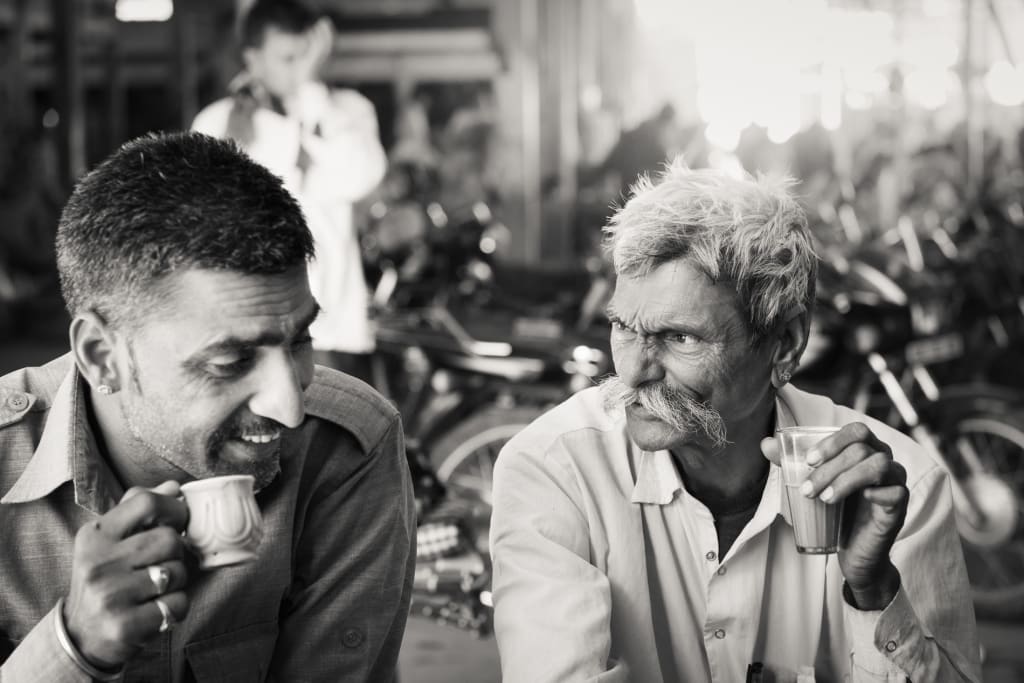
I’m being handed another cup of chai by a small man with a very large moustache. It’s my 8th one today, or at least I think so. I’ve lost count. I’m not sure I can drink another but it would be insulting to refuse. That’s something that stood out from the minute I landed in India- the generosity and compassion of people.
I’m in a small market town about an hour outside of Jodhpur with Arjun, my friend and guide. It’s late morning and full of life. People have come from nearby or remote villages to buy supplies and food they are unable to grow themselves. Women chat while selecting onions, turmeric and chillies, while men gather outside the local temple to catch the morning sun. Porters navigate crowded market lanes with large baskets of vegetables or bundles of winter blankets. Shouts are heard and the smells of spices fill the air, and from somewhere in the middle of the market unseen sheep are bleating. The saris are as colourful as the vegetables.
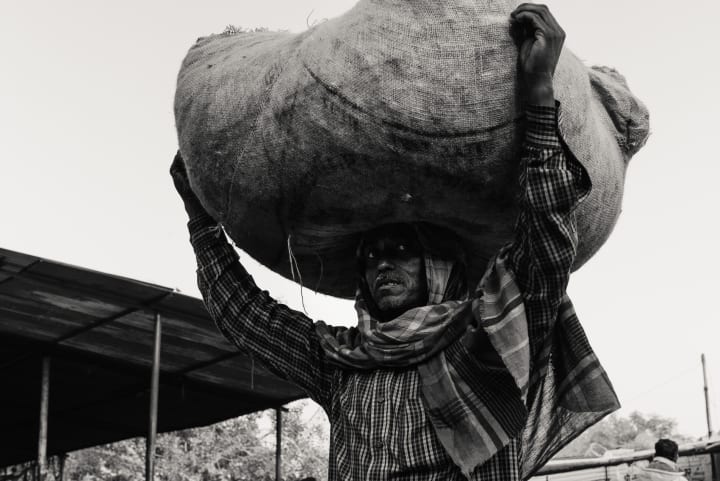
My new friend fishes in the tattered pocket of his shirt and produces a small photograph of what I presume to be his children. There are a lot of them. Six young faces beaming out at me in faded black and white. Looking back at his face, the eyes twinkle and the moustache widens to a grin and I can see the same gleam, confirming these are definitely his family.
In the streets around us, children play. Full of wide-eyed enthusiasm for the simple pleasures life has to offer. Chasing leaves along dusty alleyways and wrestling with brothers, cousins and neighbours. The chai wallah is called away by another customer momentarily, so I watch as a cricket game begins, splintered bat and a chalk outline on a wall for a wicket. It isn’t long before someone is injured. A boy trips while fielding the ball and is limping quite badly. He doesn’t want to make a fuss but doesn’t seem to have a choice in the matter. From nowhere aunties and uncles materialise and rush across the market to check on him and a debate erupts over the required treatment. Everyone here is apparently an emergency doctor- a surprisingly high concentration for a small desert town. “He needs to be bandaged right away”. “Ice. Get some ice!”. If only it was this easy to get medical attention back home I think as a man picks him up and carries him, against his will, over to an upside down crate to sit down. He wants to keep playing- Nothing interrupts the cricket- but the doctors have finally agreed on something- he needs to take the weight off his foot. Eventually he relents, and sits arms folded and brow furrowed watching the game go on without him.
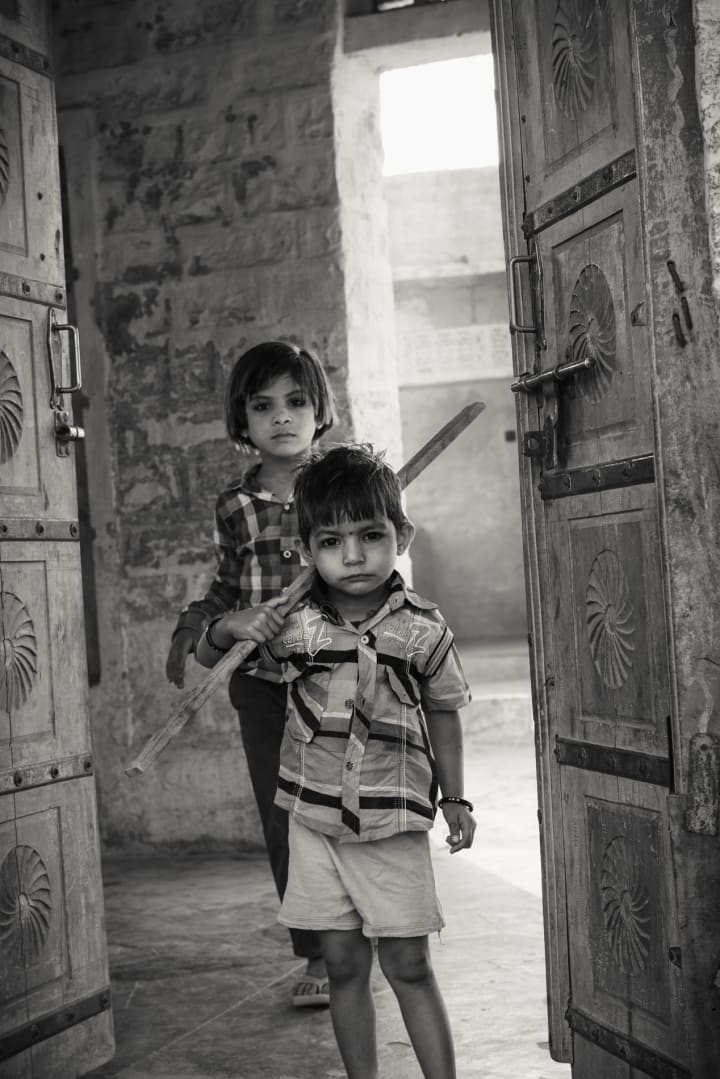
Chai Wallah, who’s name I later find out is Subhash, is back now having witnessed the spectacle from across the makeshift field.
Still thinking about the level of attention the boy has received I make an offhand remark to Arjun about how many friends and family he must have. Subhash takes an interest in our conversation so Arjun translates for him.
“Oh yes,” Subhash confirms nodding solemnly. “Everyone knows everyone else. Children do not have one mother, they have one hundred. A baby is born in a village many hours away and everyone will find out and send gifts.”
A whistle from across an alleyway and he’s off again with his teapot and stack of glasses.
This is a common theme I’ve found travelling through India, where a sense of community continues to be central to everyday life, even in the cities. I’m reminded of a similar scene a few days earlier in Jodhpur: vendors gathering in the frosty early morning, wrapped in blankets and unloading trucks and carts. Chai- the common link- is passed around between men (the vendors are exclusively men here) who will later be competing fiercely for business. For now though, they are brothers. When the business day is done, they will remain brothers. A little later I notice one vendor direct their potential customer to another who has had a very slow day. Even amongst those who scrap for each rupee to feed their loved ones, generosity exists.
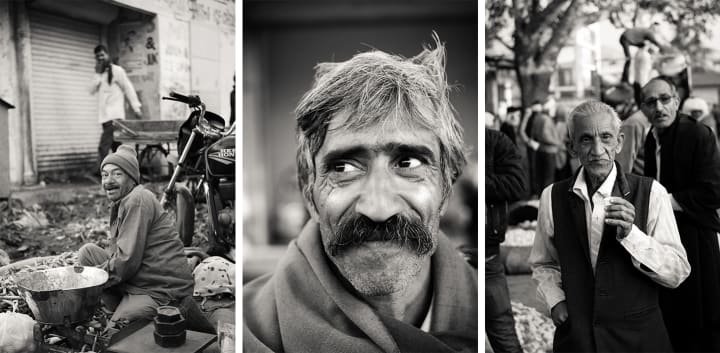
There are no children here to look after but the community is still obvious. Complete with community leaders. There are a couple of older men who appear to be in charge. One in particular who commands attention, standing in the middle of a circle as he gives some kind of speech. Later I see the same man wandering amongst the stalls, patting vendors on the shoulder and asking how trade is that day. The cynic in me wonders if his income is linked to how much the market takes each day, but these interactions are clearly genuine whatever the motivation.
I’m shaken from my reverie by the a punch of cinnamon and cardamom as another steaming glass of chai is thrusted towards me. I give Arjun a sideways glance – Seriously, I can’t drink another one. His response, a raised corner of the mount and slight lift of the brow, is one of resignation. He’s sympathetic but there is nothing he can do. It’s the facial expression equivalent of a palms up shrug. He tries to hide his amusement but doesn’t do a very good job. The disrespect of a refusal would reflect on Arjun so I clearly have no choice. I force the drink down and declare it’s time to go, the only way to avoid stomach ache. There’s now an argument about payment. Actually it’s not even an argument. I move to take out some money to settle with the chai wallah, but he sees what I’m doing and puts a hand on my arm, wagging a finger as he does so – Don’t you dare! You’re a guest. I try to insist but he cuts me off with such force I’m left a little speechless, and all I can do is thank him effusively before we head to the jeep. It takes us a good half an hour to leave. On the way out we have to shake hands with the mutton butcher, the spice merchant, half a dozen vegetable sellers, one selling exclusively carrots, a purveyor of grains and legumes, the children who have now finished their game, and numerous elders who have been sitting on the perimeter watching the world go by.
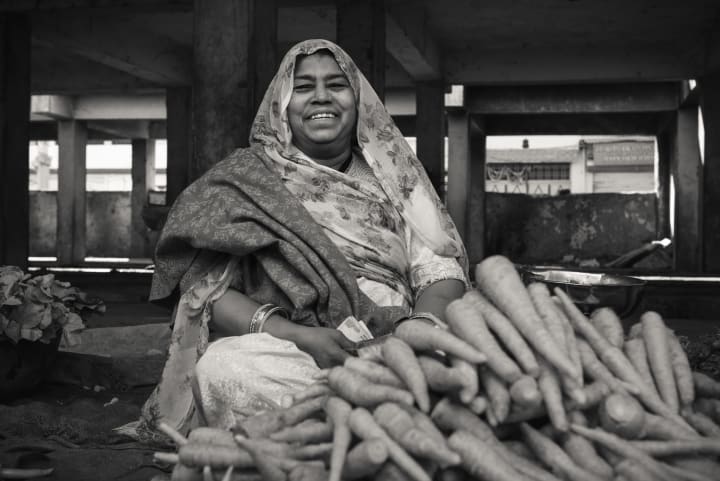
We make it eventually though and head back to the haveli where we are staying, my stomach not appreciating the bumpy dirt roads. Reflecting on the experiences of the past few days.
There is an inverse correlation between what people have and what they’re willing to give that applies everywhere in the world, but is never more pronounced than in the towns and even cities of India.
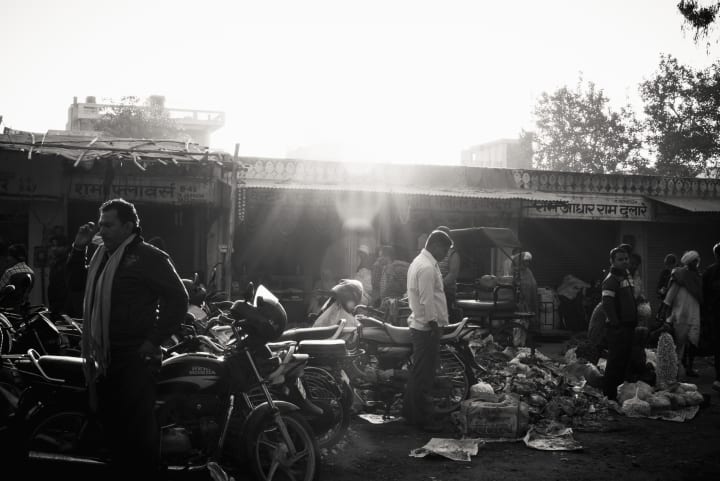
About the Creator
Mark Eden
Freelance travel photographer and writer based in Melbourne, Australia. I create images and words that help tell the stories of our vibrant, diverse world and its people.
www.markeden.com.au






Comments
There are no comments for this story
Be the first to respond and start the conversation.